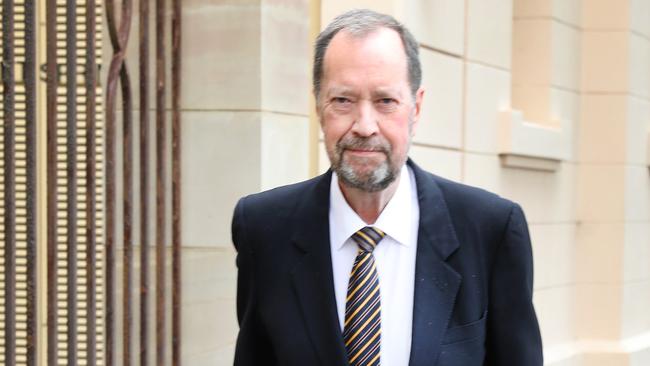Inquest: Chemo bungle victim Andrew Knox may have been affected more than others
AN inquest was told that one of the victims who relapsed may have been affected more than others by the chemotherapy bungle

SA News
Don't miss out on the headlines from SA News. Followed categories will be added to My News.
THE chemotherapy bungle victim who was underdosed after the mistake was discovered, Andrew Knox, may have been the most affected, the Coroner’s Court has been told.
At the resumption of the inquest into the deaths of four patients who have died, haematology expert Professor John Gibson said a catch-up dose given to Mr Knox a month later was unlikely to have fully compensated for the underdosing. Professor Gibson, who heads haematology at the Royal Prince Alfred Hospital in Melbourne, said he shared the view that Mr Knox’s relapse just over two years after his diagnosis was shorter than might have been expected.
Professor Gibson said it was certainly possible but could not be proven that the half dose of the chemotherapy drug Cytarabine — wrongly administered to ten acute myeloid leukaemia patients in two hospitals in a six-month window starting mid 2014 — contributed to a shorter remission.
Mr Knox was the healthiest at diagnosis of the five patients whose treatment was being examined in depth by Deputy State Coroner, Anthony Schapel.
This includes the four dead — Chris McRae, Johanna Pinxteren, Bronte Higham, and Carol Bairnsfather — and Mr Knox. After being in full remission shortly after the treatment, he relapsed on his birthday last December.
“(Mr Knox) is the one that is most likely to have been affected by the underdosing,” Professor Gibson said.
The inquest was told the mistake in treatment was discovered at the RAH on January, 16, 2015 and Mr Knox was given the incorrect dose at FMC six days, eight days and 10 days later.
Professor Gibson said it was logical to assume the finder would alert the users of the protocol that there was a problem.
“Irrespective of one’s training, you expect that would be common sense,” he said.
Over the next four weeks, witnesses will give evidence about why this failed to happen and whether the mistake contributed to the deaths, or the relapse of the patients.
Mr Knox, gaunt after serious weight loss and with a spinal lesion affecting his legs, returned recently from treatment in Melbourne which included a stem cell transplant.
“I think clarity is what we want,” Mr Knox said outside court.


